Student Portal
Poet and dramatist Amiri Baraka said, “There is no depth to education without art.” Poetry is a unique art form that has significance within many cultures. Poets within the African American community have long used poetry as a medium for expression, reflection, and call to action regarding their struggles for freedom and equality. The lessons in the Furious Flower Poetry Archive focus on the following three themes prevalent in African American poetry: Timeline: History, Witness, and the Struggle for Freedom in African American Poetry; Language, Music, and the Vernacular Tradition in African American Poetry; and Seeding the Future of African American Poetry.Each theme-based lesson begins with relevant background information about the poet, a video of a poet reading a poem, the printed version of the poem, and follows with four question-based topics to drive instruction. The topics follow: Reader Response, History and Culture, Craft and Structure,and Reading and Writing Connections.
Considering that students bring their own histories and cultural identities to their school experiences, it is important that students learn about and see their cultural heritages reflected in the reading and writing they do in their high school courses. For this reason, the poetry lessons are student centered and begin by asking questions that relate the themes in the poems to the lives of the students. Once students have made personal connections with the poems based on their own experiences, they are then ready to make connections with the themes and concepts discussed in the poems. In coupling the students’ perspectives with those of the poets, the educational team believes that the students’ study of the poetry will have deeper meaning for them and will create a more lasting impact in their lives.
If you are new to reading poetry, the following questions will act as a beginner’s guide. As you read each poem, ask yourself, “Who is the speaker in the poem?” “To whom is the poem addressed?” “What tone does the speaker use in the poem?” “What event does this poem describe?” and “What happens in the poem?” Each of these questions will be essential in aiding your understanding of the poems below.
Lesson Plan
THEME:
History, Witness, and the Struggle for Freedom
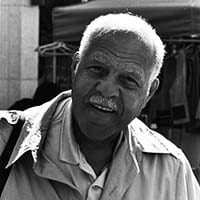
“The Apple Trees in Sussex” by Samuel W. Allen
Samuel W. Allen was known for merging African and African American culture in his poetry. As you read this poem and complete this lesson, think about what you’ve learned about colonialism and the characteristics you assign to the words “civil” and “savage.”
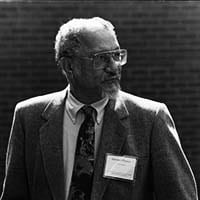
“Nat Turner in the Clearing” by Alvin Aubert
Alvin Aubert was an award-winning poet, playwright, editor, and literary critic who was dedicated to championing African American culture. As you read this poem and complete this lesson, think about the history and consequences of Nat Turner’s Rebellion and why this is an event that we still find relevant today.
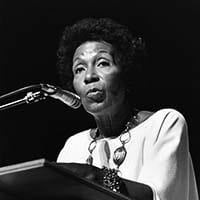
“Alabama Landscape” by Mari Evans
Mari Evans was an educator, writer, and musician who played a major role in influencing the Black Arts Movement. As you read this poem and complete this lesson, think about how this poem is still relevant in our world today.
THEME:
Language, Music, and the Vernacular

“We Real Cool” by Gwendolyn Brooks
Gwendolyn Brooks was the poet for whom the 1994 conference was named and dedicated. As you read this poem and complete this lesson, consider the influence of sound, rhythm, and jazz improvisation on poetry.
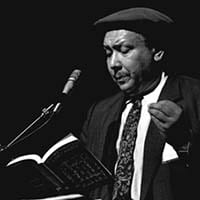
“Last Affair: Bessie’s Blues Song” by Michael S. Harper
Michael S. Harper was an acclaimed poet, editor, and educator. Bessie Smith, the subject of the poem, was a blues singer from the 1920s. As you read this poem and complete this lesson, think about what music means to you and the influence that it has on your own life.
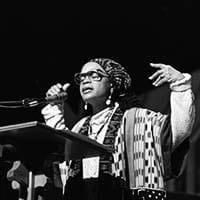
“Catch the Fire” by Sonia Sanchez
Sonia Sanchez is a poet, activist, playwright, editor, and teacher. “Catch the Fire” asks you to think about your “fire” and the value you place on the issues you are passionate about.
THEME:
Seeding the Future of African American Poetry

“Blues” by Elizabeth Alexander
Elizabeth Alexander is a poet, educator, and arts activist who was one of the younger poets to attend the 1994 conference. As you read this poem and complete this lesson, think about imagery and structure as you consider what “the blues” mean to you.
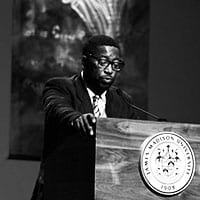
“Some Kind of Crazy” by Major Jackson
Major Jackson, a former member of the Dark Room Collective, is a renowned poet, editor, and professor. As you read this poem and complete this lesson, think about who your “community of believers” are and what they mean to you.

“Cousins” by Kevin Young
Kevin Young, a former member of the Dark Room Collective, is the current poetry editor of The New Yorker. “Cousins” is a personal poem centered around family and loss. As you read this poem and complete this lesson, think about the role family plays in your life and what it means to you.